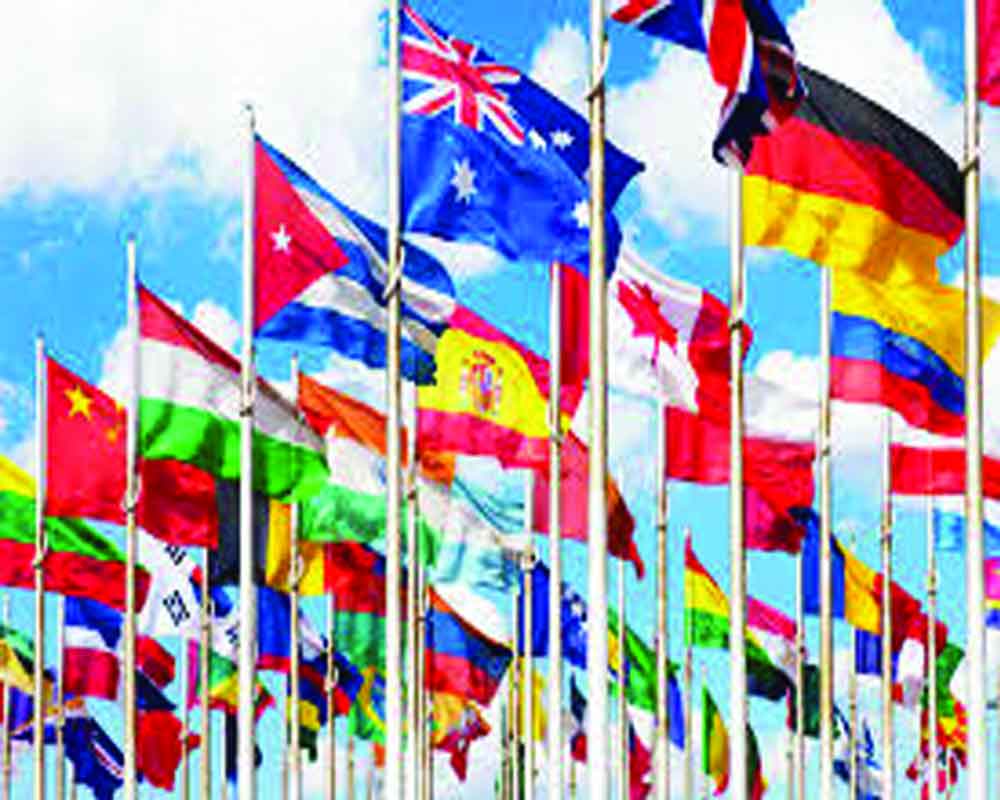No political party is telling people about its foreign policy in its election campaign
Most large national political parties are busy providing finishing touches to their election manifestos. These documents will hold stated promises, from political parties, if voted to power and most of them would swing between populist measures such as free electricity, water or promise a dream for a developed India in next twenty-five years or so. However, none of the manifestos from political parties, so far, are showing any promise of having dedicated chapters on India’s foreign policy outlook, if their group has majority in June 2024.
The ruling BJP , which has been power for a decade now, is widely bene perceived to have steered India’s foreign policy in direction, where India is seen taking influential positions on the geopolitical theatre. One of the most significant aspects became visible with the party appointing career diplomat Dr S Jaishankar as India’s foreign affairs minister, in 2019, thereby bringing in a suitable candidate for the post. In hindsight, it may also be argued that with Mr Jaishankar, a veteran diplomat , having several senior level contacts across the aisle, in US and in China , the Government set the ball rolling for its visual ascendance on geo political map, culminating in a grand finale of India’s G20 presidency with a consensus joint statement .
Dr Jaishankar it seemed delivered on his brief, of managing the volatile tension prevailing between the western world (led by US and Europe) and China , Russia group, to deliver a joint statement during India’s G20 presidency. Meanwhile, India continued to posture itself as the authentic voice of the global south , holding a conference just before, the G20 summit.
The global south , has broadly been dubbed by many analysts, as the new nomenclature for Non Aligned Movement (NAM), due to the commonalties. The NAM group of countries (including India) chose a middle path away from the prevailing tensions of the cold war era power blocks (US and erstwhile USSR) a situation, similar, the broad common agendas of global south countries, even though, the realties have changed drastically on ground. India, by assuming the lead position as voice of the global south, engages with every relevant global power ( read US and China) for a fair and equitable say in common issues, including climate change, energy prices impacted by war and restructuring of multilateral bodies , to name a few.
Prime Minister Modi ensured that India could keep its domestic inflation under control by purchasing west sanctioned , Russian oil, while convincing/communicating policy makers and influencers in Washington DC, New York and several other European capitals about India’s position on the war. India in two years moved from being on the verge of being sanctioned to being recognised for the balancing act it played in preventing a nuclear attack on Ukrainian territory by Russia. India meanwhile also managed to expand the bilateral strategic relationship with US moving beyond defence cooperation to a technology partnership , specially, for new and emerging frontiers such as artificial intelligence. With this background, it is hard to believe that the current ruling party at the centre, which has made foreign policy as one its showstoppers for an awed electorate, may exclude definitive statements in its election manifesto. Meanwhile the principal opposition party, except for making few remarks on the West Asia crisis and Ukraine, has steered clear of commenting on Mr Modi’s foreign policy outlook. It is hardly likely that there will be significant mention regarding same, in either their individual manifesto or any combined alliance manifesto. At a time when the promise of becoming the world’s third largest economy looks real and India gets more integrated with the global affairs, absence of clear stated foreign policy agenda by political parties , may be a yawning gap.
(The writer is a policy analyst; views are personal)


























